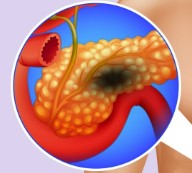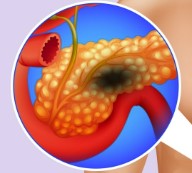Pancreatic Cancer & Heredity
Five to ten percent of pancreatic cancer cases are hereditary; the risk of pancreatic cancer is increased three-fold if one first-degree relative is affected.
Having multiple affected family members increases the risk even more. In high-risk families, some members may have a fifty-fifty chance of developing the disease. At present, almost all symptomatic pancreatic cancer is advanced and incurable when diagnosed. In hereditary pancreatic cancer, we have already shown that pre-cancer or early cancer diagnosed while asymptomatic is curable.
UW Surveillance Program
The surveillance program is the first of its kind in the world.
A team of doctors at the University of Washington has developed a multidisciplinary surveillance program for the early detection of pancreatic cancer and its precursors in patients with a familial predisposition for the disease. The approach requires the expertise and dedication of specialists who are trained in pathology, endoscopy, and surgery of the pancreas.
Specialists at the UW are among only a handful of physicians worldwide with the expertise and experience to identify patients who have pancreatic pre-cancer and whose condition warrants surgical intervention to prevent cancer from developing.
Early Detection is Essential
UW researchers are advancing the frontiers of clinical care.
The genes that cause pancreatic cancer are being sought, an effort that will help define more clearly which family members are at risk. When a genetic test to diagnose hereditary pancreatic cancer is discovered, it may also prove useful in diagnosing the more common non-hereditary types of the disease.
Epidemiologic studies at the UW have uncovered risk factors, such as smoking and exposure to dry cleaning fluids, which can dramatically influence the cancer risk of patients who have a positive family history. Similar environmental factors may be found in the more common non-familial pancreatic cancers.
UW researchers are conducting basic science research aimed at refining early diagnosis, prevention, and treatment for all forms of pancreatic cancer.
Encouraging Results for Excellent Quality of Life & Prolonged Remissions
Our researchers are modifying the treatment of unresectable pancreatic cancer to involve low-dose chemotherapy and are actively conducting therapeutic trials of different treatment adjuvants. Results are encouraging, and patients with pancreatic cancer can have excellent quality of life and prolonged remissions. In addition, there is a growing body of evidence that multiple factors, including diet, exercise, and stress management, can also affect one’s risk for developing cancer of the pancreas or other digestive organs.
More research studies in alternative adjuvants to traditional therapies may shed further light on the role of these nutritional and behavioral factors in both prevention and treatment.





